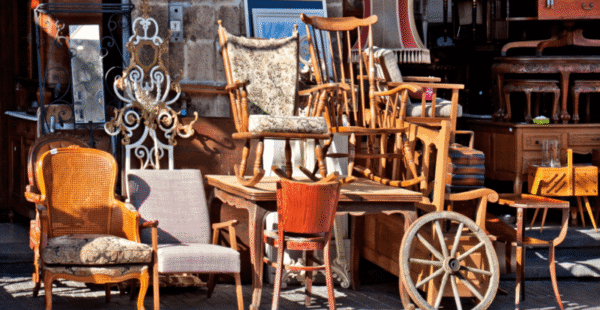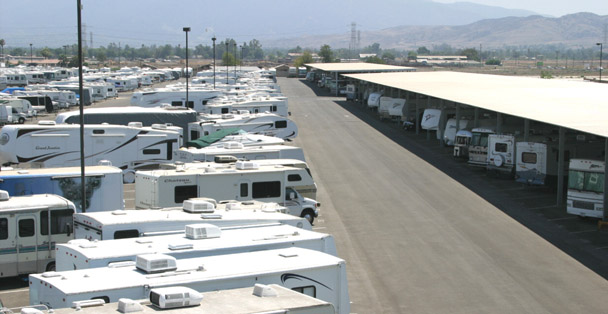September is not only the season for changing fall colours and cool weather, but back-to-school madness as well. This is also the season for a new wardrobe, a set of organizational materials (that include everything from folders, to sticky notes, to bins and filing cabinets), and packing away anything that will not serve you during the incoming school year. This is especially true of those students who are leaving home in exchange for college dorms.
It might seem to some that students do not have much to bring with them – after all, how much could a student accumulate. Whether you are a student who is also a pack-rat or you are a student who is moving to a petite dorm room with barely enough room to store a bed, a desk and tools for minimalist living – it may be worth exploring a rarely discussed option: renting a storage facility to safely keep the items that you may not need or cannot afford to bring with you.
This option is particularly helpful for those students who live far away. Storage units can help students de-clutter their spaces (and their parents’ homes if they are still living with family), keeping their study space clear by minimizing what does take up the small space they have. Perhaps most importantly, as a student on a budget (likely a shoe-string one), it’s important to find a storage option that is convenient, can keep your items stored away safely so as not to transport them across long distances unnecessarily. It is an option to pack away your items in a way that is highly cost-effective. Like any storage options, you can pick from small to large as these spaces vary in size.
So what are some key tips when planning to store your items as a college student heading back for the school year? Below, we’ve got all the tips you might need to address your storage needs and the anxiety over how to and what to store while you are at college busily working on school assignments.
What to retrieve from storage
 As a student you will likely have any number of things that will not serve you while away at college that you can easily store. Some of these items you may not need until the summer break, or even beyond. In which case it makes sense to avoid the hassle of moving your belongings if they will just be cluttering up your dorm room. Before moving back to school, consider packing away the following items:
As a student you will likely have any number of things that will not serve you while away at college that you can easily store. Some of these items you may not need until the summer break, or even beyond. In which case it makes sense to avoid the hassle of moving your belongings if they will just be cluttering up your dorm room. Before moving back to school, consider packing away the following items:
Any kitchen items – namely appliances like toasters, refrigerators and coffeemakers – may come in handy in your dorm room if your space is not already equipped with them. The same might also be true of fragile kitchenware or even electronics, such as television or electric fans. However, if your college space comes equipped with any of these items, consider storing them until you return back from your college experience in the summer.
It’s also important to note that college dorm rooms are rather small. This means that there might not be enough space to house your favourite pieces of furniture. So if you have a comfy futon, or large coach that does not fit your space, consider storing those items as well.
You may also have personal items that do not fit in your campus space such as: stowaway blankets for colder weather, seasonal clothing, and even seasonal equipment such as bikes and various other sports equipment. In these cases, it makes most sense to store these items until they’re needed.
Where to store during the school year?
 Picking you storage space can be tedious, confusing, and even draining of your resources. Depending on whether you live on or off campus, you may need to consider different questions. For example, if you can live off campus and the space you’ve retained is quite large, you may opt to rent a storage unit that is smaller in size. Alternatively, if your dorm room space is small, it is probably best that you find a storage space that is large enough to accommodate all of your possessions. As you might already assume, larger spaces Will cost far more money, while smaller spaces will help you cut the costs.
Picking you storage space can be tedious, confusing, and even draining of your resources. Depending on whether you live on or off campus, you may need to consider different questions. For example, if you can live off campus and the space you’ve retained is quite large, you may opt to rent a storage unit that is smaller in size. Alternatively, if your dorm room space is small, it is probably best that you find a storage space that is large enough to accommodate all of your possessions. As you might already assume, larger spaces Will cost far more money, while smaller spaces will help you cut the costs.
When picking a facility there’re a number of topics to consider. For example, Will you need a business that can provide you with packing supplies complementary moving storage solutions so that you can transport your belongings to and from the storage facility? Or, is it important to you that the storage facility offers you protection by way of premium security? Regardless of your particular needs, it is important to make a list in order that you will be prepared to ask you the necessary questions when it comes time to select a storage provider.
Must ask questions when selecting storage facility:
Before selecting your storage facility, it is important that you inquire about any additional fees, conditions, and the size of your unit’s space. Also be sure to convey your budget – it may be the facility can help offer additional discounts I will give you the best bang for your buck. If you were concerned about security, be sure to ask about the facilities policy around protecting the items of its clients. Alternatively, the items you are storing it might also be fragile and require a temperature-controlled environment. This is particularly true of items such as leather or wood furniture that could buckle from water or cold, textbooks and electronics that could get damaged from the heat of the sun, or even items such as film which have the potential of becoming damaged after being exposed to moisture. Finally, be sure to inquire about access to your unit. Find out if there’re specific times and that the facility is open, and whether you will have access to your unit beyond closing time. You might also inquire about whether there is a minimum leasing requirement, has some providers to expect that clients rent the unit space for a particular length of time, rather than on a month-to-month basis.




